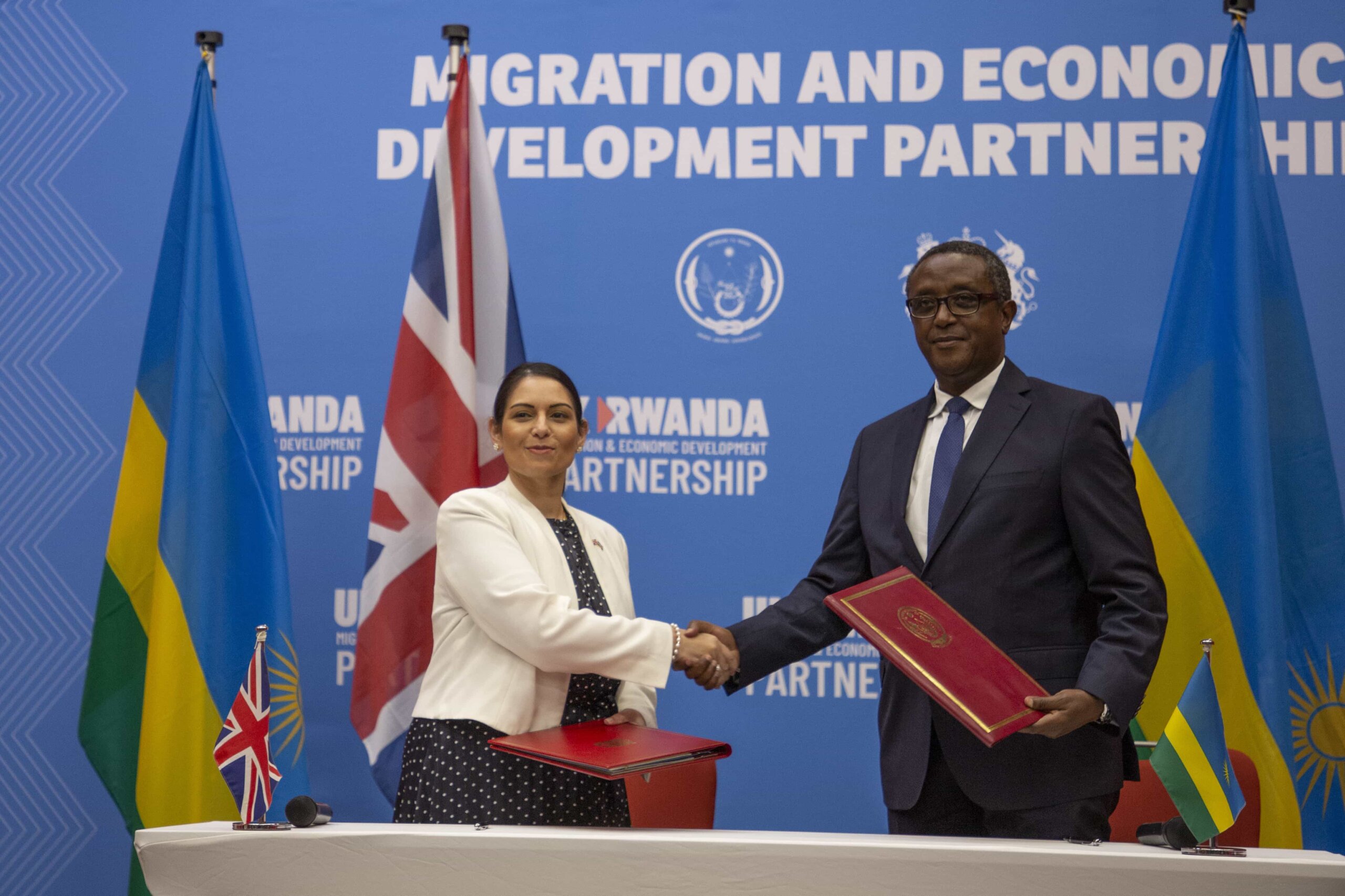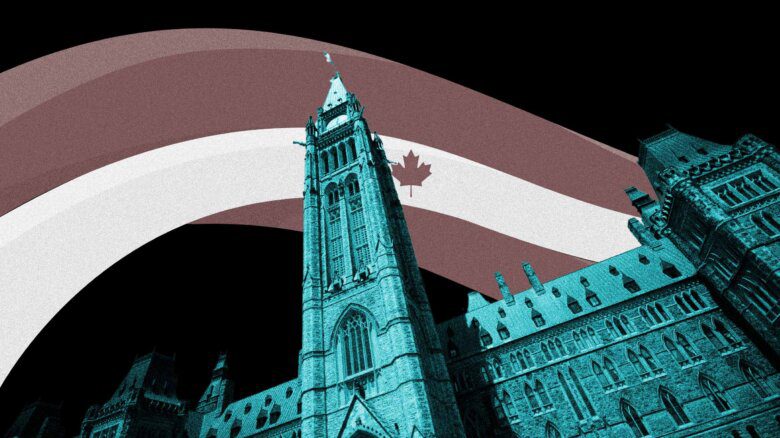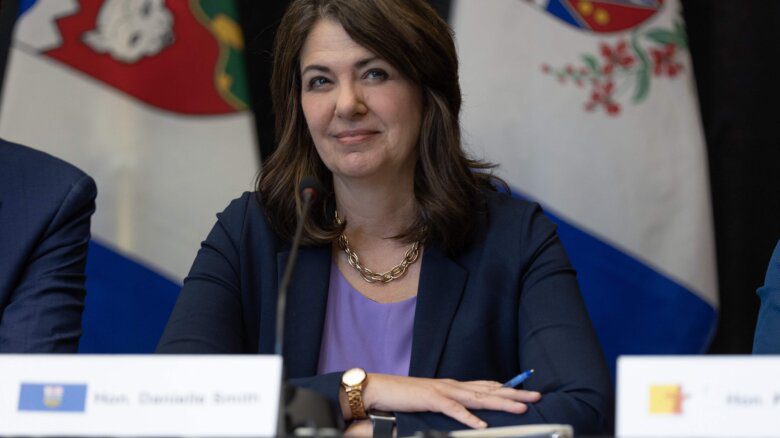The U.K. government’s plan to send some asylum seekers on one-way flights to Rwanda has been criticized by queer and trans advocates as “hugely concerning” and “potentially life-threatening.”
The plan, announced on April 14, would permanently relocate some asylum seekers to Rwanda and force them to seek asylum in the central African country instead. According to newspaper The Guardian, Prime Minister Boris Johnson claimed that “Rwanda will have the capacity to resettle tens of thousands of people in the years ahead,” and that the controversial decision was necessary to “beat the business model of gangs.”
In a statement, Canadian-based LGBTQ2S+ migration charity Rainbow Railroad tells Xtra that the government’s plans would endanger queer and trans asylum seekers. “By sending individuals seeking asylum to third countries without sufficient safeguards, these agreements also allow governments to evade their obligations under international law and erode the universal right to asylum,” the organization says.
The proposal is also fairly unpopular—a YouGov survey of 2,943 adults, conducted hours after the policy was announced, found 42 percent of the British public opposed the policy, while 35 percent supported it.
While exact details are still unknown, the U.K. home secretary Priti Patel said in a speech that migrants who arrived in the U.K. “illegally” (by boat or automobile) would be eligible for forcible resettlement in Rwanda. Reuters reports that the plan is focused on single young men, though The Guardian notes that minors as young as 15 are regularly classified as adults by the U.K. government—meaning children would likely be deported.
“By sending individuals seeking asylum to third countries without sufficient safeguards, these agreements also allow governments to evade their obligations under international law and erode the universal right to asylum.”
Queer and trans asylum seekers in the U.K. already face inhospitable conditions. Sebastian Rocca, founder of charity Micro Rainbow, which provides safe housing to LGBTQ2S+ asylum seekers and refugees in the U.K., tells Xtra in a statement: “One of the most common reasons for the Home Office to refuse asylum to LGBTQI+ people in the U.K. is because they do not believe they are LGBTQI+,” adding that the policy has “potentially life-threatening consequences.”
The “single young men” framing of the policy means any gay or bisexual men, transmasculine people or transfeminine people—including those seeking asylum in the U.K. for their sexual orientation or gender identity—could potentially be deported to a country with a long history of human rights violations.
Rwanda’s 1990-1994 civil war resulted in genocide; an estimated 800,000 to 1 million members of the Tutsi ethnic group were killed. Since 2000, the country has been led by Paul Kagame and the authoritarian Rwandan Patriotic Front. According to international non-governmental organization Human Rights Watch (HRW), “arbitrary detention, ill treatment and torture in official and unofficial detention facilities is commonplace,” and fair trial standards are often ignored—particularly in “sensitive political cases.” Detention and mistreatment of “street children, sex workers and petty vendors” is commonplace.
The U.K. government has also repeatedly expressed their concerns over human rights in Rwanda as recently as last year, British online newspaper The Independent notes.
Although homosexuality is not illegal in Rwanda, there is no legal recognition of queer relationships or protection from discrimination, nor can trans people change gender markers on official documents. A September 2021 HRW report found that Rwandan authorities forcibly round up and arbitrarily detain LGBTQ+ people for “not representing Rwandan values,” according to survivor testimony.
Sonia Lenegan, policy and legal director of Rainbow Migration, tells Xtra in a statement that the implications of the policy are “hugely concerning.”
“We know that in Rwanda it is not easy for LGBTQI+ people to be open due to the discrimination and abuse they experience, and so it is extremely difficult to see how anyone in that situation will be able to be make an asylum claim based on the fact that they are LGBTQI+, while also having to hide who they are,” she says.
The Israeli government under then-prime minister Benjamin Netanyahu had previously signed a similar deportation deal with Rwanda, forcibly sending around 4,000 refugees to the country between 2014 and 2017. The Guardian reports that almost all left the country immediately, and the very few who did stay faced destitution.
Since its announcement, the U.K.’s deportation plan has been widely condemned by politicians and groups across the political spectrum.
Opposition Labour Party leader Keir Starmer said the policy reflected “a prime minister who has got no grip,” according to Al Jazeera. Former prime minister Theresa May said the policy did not meet standards on “legality, practicality and efficacy,” per the BBC. And Scottish National Party MP Stuart McDonald called the policy “utterly shameful,” saying it “will only add to the pain and suffering being felt by those fleeing their homeland,” according to Scottish newspaper The Scotsman.
CNN reports that the United Nations Refugee Agency, Human Rights Watch and human rights group Amnesty International have all criticized the proposal.


 Why you can trust Xtra
Why you can trust Xtra


